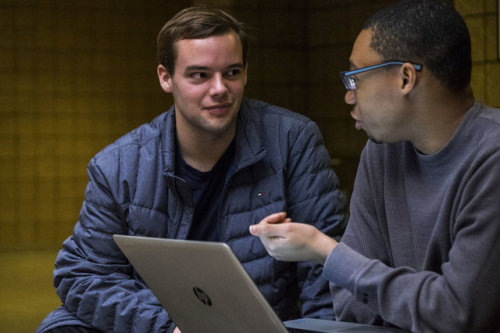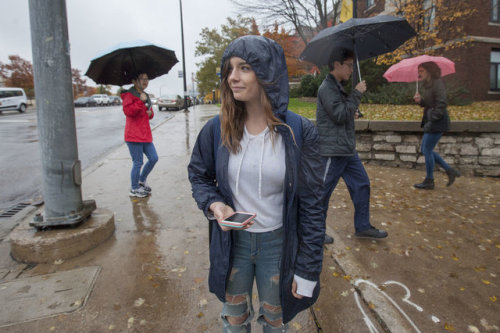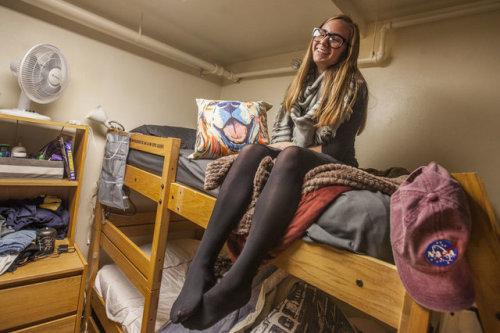npr:Back home, Kendra Beaudoin, a University of Michigan sophomore from Lake Linden, Mich., didn’t k
npr:Back home, Kendra Beaudoin, a University of Michigan sophomore from Lake Linden, Mich., didn’t know a lot of people with a bachelor’s degree; fewer than 1 in 5 rural adults aged 25 and older have them, according to the U.S. Department of Agriculture’s Economic Research Service.At Michigan, Beaudoin is majoring in biopsychology, cognition and neural science, and has co-founded a club for first-generation students to give each other moral support and advice.“I’m still intimidated by professors. Going to office hours is terrifying,” she says. “There were definitely moments when I was like, ‘I’m only going here to fill a diversity quota and I don’t really belong here and everybody else is so much smarter than me.’ ”One challenge faculty and staff face in helping rural students: they often don’t realize that rural students, who are predominantly white, need the extra help. “If you are an instructor in a class looking out, you cannot identify [a first-generation rural student] in the way you might say, ‘Well, I have an African-American student in this class,’ or, ‘I have a student of Muslim identity in this class.’ So we start there,” says Gail Gibson, director of the University of Michigan’s Kessler Presidential Scholars Program. “What the student is experiencing in a classroom situation or in a dorm situation may or may not be visible.”There are other reasons universities are suddenly addressing this group. One is self-interest. As the number of 18- to 24-year-olds declines, and a robust economy draws more people straight into the workforce, enrollment at universities and colleges has fallen by 2.9 million since its last peak in 2011. Institutions need to find more students, and rural America has an underutilized supply.Another reason is political. “If we want to increase conversations across party lines and ideologies, we have to be exposed to one another,” says Sonja Ardoin, assistant professor for Student Affairs Administration at Appalachian State University, and a one-time rural student herself.Lycoming College’s Kent Trachte adds, “We in higher education had better be thinking about how do we bring together young people from these different backgrounds to a place where they can hopefully have civil discourse.”'Going To Office Hours Is Terrifying’ And Other Tales Of Rural Students In CollegeImage credits: Diane Weiss for The Hechinger Report -- source link
Tumblr Blog : npr.tumblr.com



